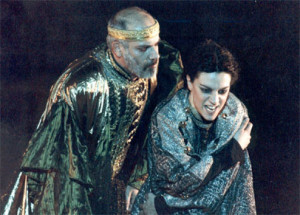
To stand up for one’s rights and disobey the state laws knowing there are consequences is not easy. I believe the love for family’s members is the strongest motivation for her to risk her life.Īntigone is a brave character who speaks up to protect her rights.

If I was in her position, I would totally do the same. However, she has been through so much grief, so death might as well be her relief. She is aware of the consequences of her action – death. Therefore, she is not afraid if people know she goes against Creon’s edict to bury her brother. Antigone believes that the state laws should not override the god’s laws. Punishing someone in such a way is not in accordance with god’s laws and is immoral. It is the worst possible punishment not to give someone a proper burial. Moreover, burial rituals are important in ancient Greek religion. Therefore, even before mentioning the laws of god, we should respect everyone’s wish to carry out a family member’s burial. She has gone through so many family tragedies: losing her father, mother, and now her two brothers. My question is: should Antigone risk her life for her action? If she had not insisted on her belief and halted her actions, what could have been worse? Antigone is a heroine in the play. To continue with the analysis, I will focus mainly on the topic of civil disobedience. Not giving a proper burial to a person is immoral and against traditional beliefs. On the other hand, the citizens of Thebes also live up to god’s laws which have been embedded deeply in their culture.

Being the king of the country, he makes the laws, and everyone must obey him. Creon insists that everyone must listen to his orders. The main conflict revolves around the questions of natural laws versus human laws. Creon is furious at her disobedience and decides to punish her to death. She disobeys the state laws, and is not afraid to speak up for her moral act. Despite the king’s proclamation, Antigone vows to bury her brother’s body. Creon believes Polynices is a traitor, and does not deserve to have a proper burial. While Eteocles was honored as a hero, Polynices receives a harsh punishment by Creon, the new king.

In addition, it also gives me great thoughts reflecting on my personal views and civil rights.Įteocles and Polynices, the two brothers of Antigone, both die after fighting in the Theban civil war. The conflict of the play is especially interesting to me comparing to my experience growing up in a communist country. The tragedy ends with tragic consequences not only for Antigone for her civil disobedience, but also for Creon for being a tyrannical ruler. It deals with Antigone’s burial of her brother Polynices in defiance of the city’s ruler Creon and state laws. Antigone by Sophocles is an ancient Greek play written around 442 BCE.


 0 kommentar(er)
0 kommentar(er)
